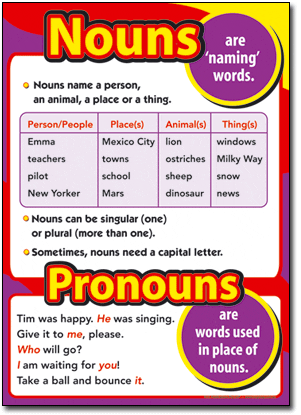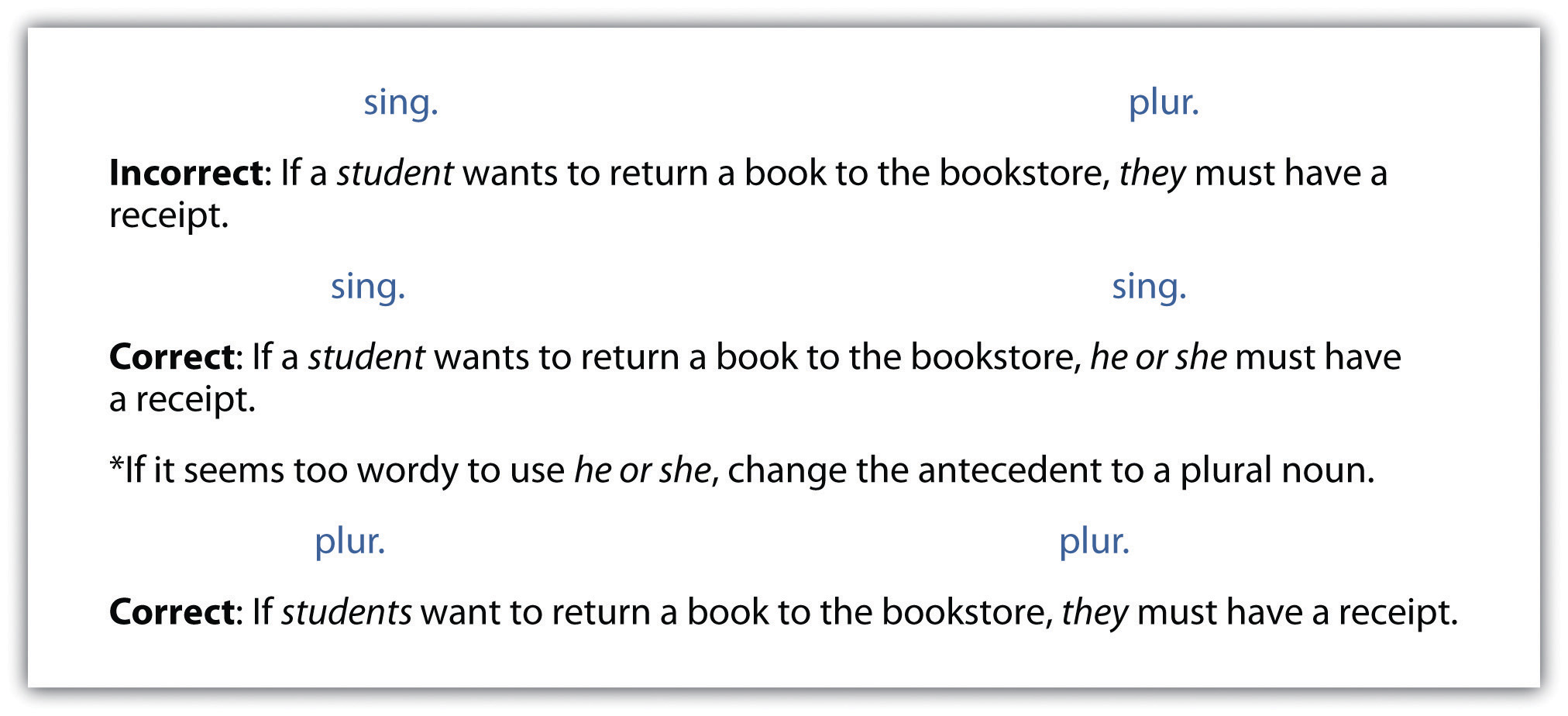What Is Noun And Pronoun : Pronouns / Pronouns are words that we use in place of nouns (or other pronouns) in a sentence to make it less repetitive and less awkward.. What color is your bag? Which movie do you want to watch? Without pronouns, we'd constantly have to repeat nouns, and that would make our speech and writing repetitive, not to mention cumbersome. A pronoun takes the place of a noun or a group of words acting as a noun. Nouns can be simply the names of people, objects, places or ideas.
Because they act as substitutes for various nouns they have to form different categories depending on their use. Pronouns are words that we use in place of nouns (or other pronouns) in a sentence to make it less repetitive and less awkward. He, she, him, her, them, they, us, we, you, i, that, which, whom, those. A pronoun is traditionally a part of speech in grammar, but many modern linguists call it a type of noun. According to oxford dictionary a noun is a word (other than a pronoun) used to identify any of a class of people, places, or things (common noun), or to name a particular one of these (proper noun).

While nouns only have two distinct categories, pronouns have multiple.
A word (except a pronoun) that identifies a person, place or thing, or names one of them (proper noun). Pronoun is a derived term of noun. Types of pronouns include personal. These words are like nouns but make our sentences clearer to read. * demonstrative pronoun * indefinite pronoun * intensive pronoun * interrogative pronoun * object pronoun * personal pronoun * possessive pronoun * reciprocal pronoun * reflexive pronoun * relative pronoun. We can usually identify an interrogative pronoun by the fact that they often appear at the beginning of a. Who wants a bag of jelly beans? A noun is the word used to represent a person, place, or thing (including objects, animals, and ideas). Chances are you use these while discussing people and things. A pronoun is traditionally a part of speech in grammar, but many modern linguists call it a type of noun. Proper nouns are specific, capitalized nouns. The interrogative and relative pronouns what, which can be used as nouns or adjectives: A pronoun is a word that takes the place of a noun in a sentence.
In the same vein, based on the grammatical premise that a pronoun is a word that is used in the place of a noun, we can identify a pronoun used in the. .as subjective pronouns, objective pronouns, possessive pronouns, demonstrative pronouns, indefinite pronouns, and reflexive pronouns. I'm elizabeth o'brien, and my goal is to get you jazzed about grammar. In this article, you'll learn an easy to understand pronoun definition and a few rules that will quickly improve your english skills. Like all nouns, they are either people, places, objects, activities, or ideas.
He is a blind mountain climber.
What is the antecedent in this sentence I'm elizabeth o'brien, and my goal is to get you jazzed about grammar. Pronouns can be subjects of the sentence (i, he, she, it, you, we, they) or express possession (his, her, your, my, mine, yours, its. Students learn about the characteristics and needs of nouns and pronouns. Nouns and pronouns are important parts of a language. We can usually identify an interrogative pronoun by the fact that they often appear at the beginning of a. Nouns can be simply the names of people, objects, places or ideas. These pronouns are divided into different categories. A word (except a pronoun) that identifies a person, place or thing, or names one of them (proper noun). In the same vein, based on the grammatical premise that a pronoun is a word that is used in the place of a noun, we can identify a pronoun used in the. Pronouns are actually a subclass of nouns because they often replace a noun and can complete the same function in a sentence. Without pronouns, we'd constantly have to repeat nouns, and that would make our speech and writing repetitive, not to mention cumbersome. Pronouns are words that we use in place of nouns (or other pronouns) in a sentence to make it less repetitive and less awkward.
Pronouns make up a small subcategory of nouns. The distinguishing characteristic of pronouns is that they can be substituted for other nouns. Articles are the defining words. In the same vein, based on the grammatical premise that a pronoun is a word that is used in the place of a noun, we can identify a pronoun used in the. Nouns are the words which are used to identify people, places, objects, etc.

I'm elizabeth o'brien, and my goal is to get you jazzed about grammar.
Pronouns refer to either a noun that has already been mentioned or to a noun that does not need to be named specifically. How to spot a common noun and a proper noun. Nouns and pronouns are important parts of a language. We can also put the noun and pronoun in the same sentence. Proper nouns are specific, capitalized nouns. Pronouns can be subjects of the sentence (i, he, she, it, you, we, they) or express possession (his, her, your, my, mine, yours, its. We sometimes use pronouns instead of a pronouns substitute for nouns when we want to avoid using the name of the object or person again in the sentence. In this article, you'll learn an easy to understand pronoun definition and a few rules that will quickly improve your english skills. A pronoun is traditionally a part of speech in grammar, but many modern linguists call it a type of noun. I'm elizabeth o'brien, and my goal is to get you jazzed about grammar. Chances are you use these while discussing people and things. Aunt jane made cookies for jack and jill. A pronoun is a word that takes the place of a noun.